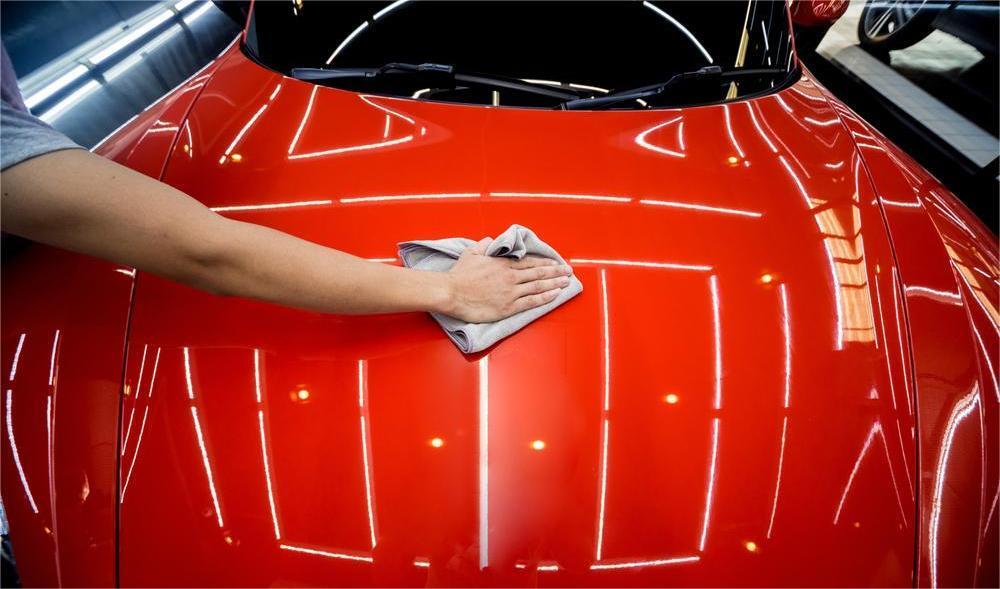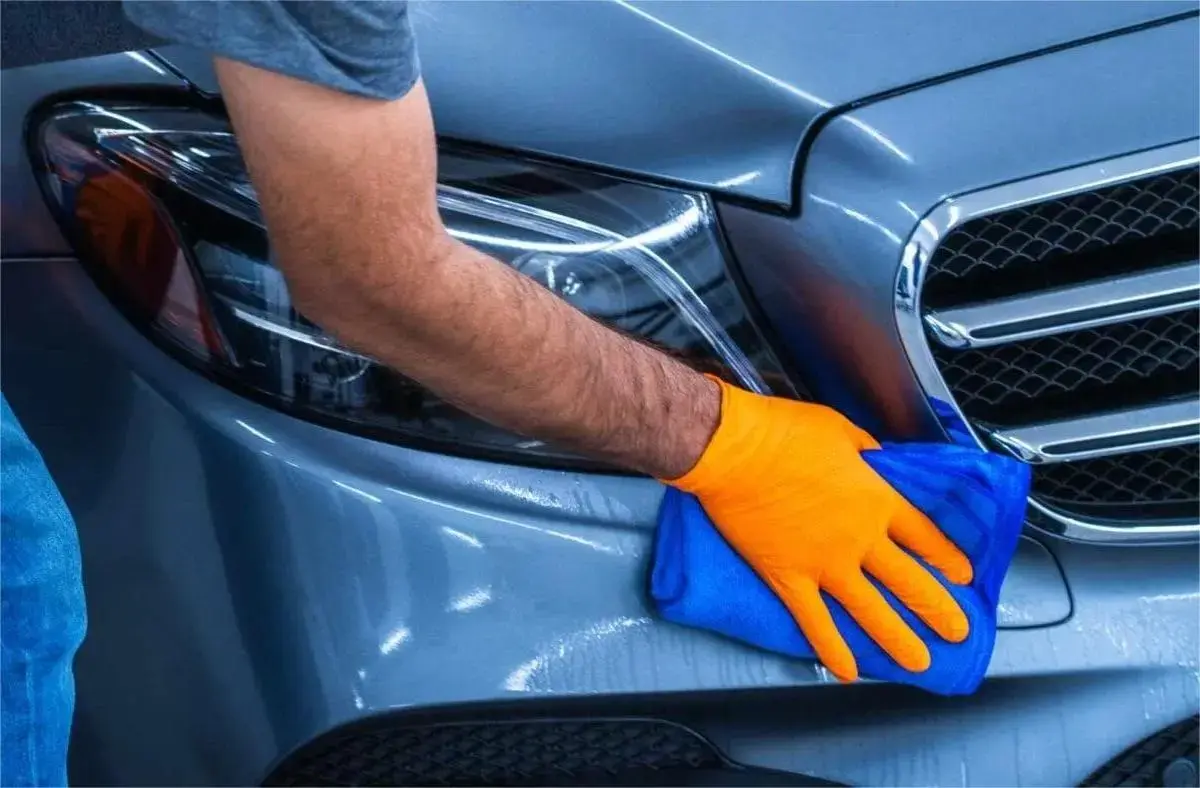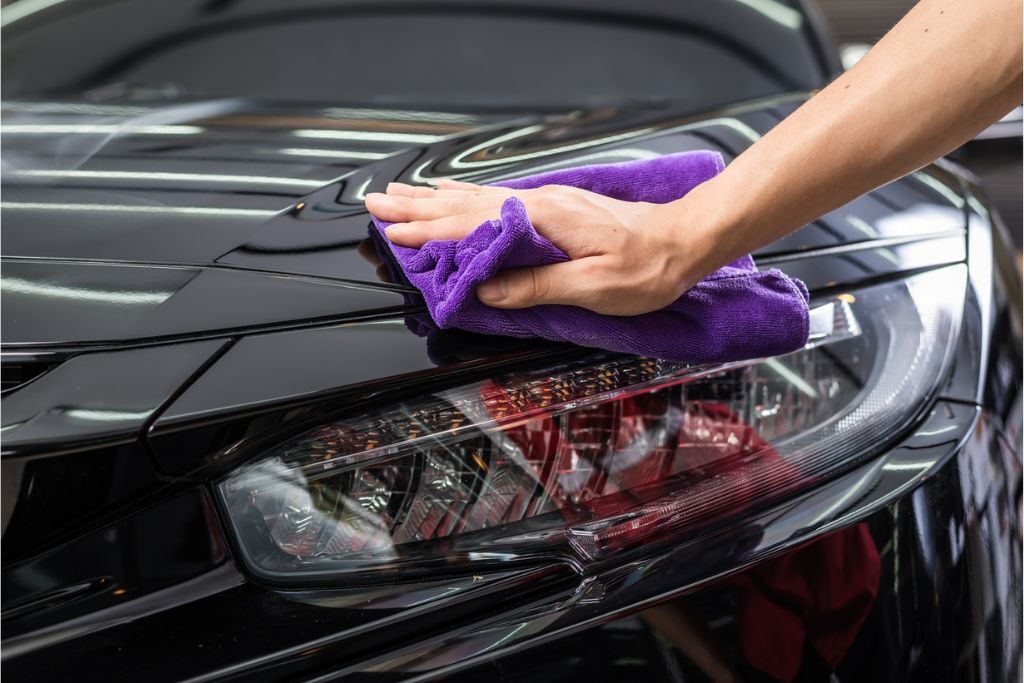Key Differences Between a Car Wash and a Truck Wash
When it comes to keeping your vehicle clean, you may think that a truck washout and a car wash truck are essentially the same. However, there are distinct differences between commercial truck wash services and a standard truck car wash designed for smaller vehicles. Understanding these differences can help you make an informed decision about how to properly maintain your vehicle, whether it's a personal car or a commercial truck.
In this blog, we’ll take a deeper dive into the variations between car washes and truck washes, explaining the specific equipment, cleaning methods, and pricing structures that make each service unique. Whether you're in need of a closest truck wash location or considering a commercial truck wash for your fleet, this guide will help you understand the best option for your needs.
1. Key Differences Between Car Wash and Truck Wash
Both car washes and truck washes aim to clean vehicles, but the approach, equipment, and service differ significantly, as the size and requirements of cars and trucks are not the same. Here’s how they compare:
Car Washes: Tailored for Smaller Vehicles
Car washes are designed for smaller, everyday vehicles like sedans, hatchbacks, and SUVs. These washes are generally equipped with smaller bays and equipment specifically made to accommodate the dimensions and features of personal cars. Here are the key components:
- Smaller Bays and Equipment:
Car washes typically use smaller bays and cleaning equipment like soft brushes and spray nozzles tailored for the size of a car. This ensures efficient and effective cleaning for vehicles with standard dimensions.
- Cleaner Vehicles:
Car washes usually deal with lighter contaminants like dust, road salt, and minor dirt, making it easier for the equipment to remove without much struggle.
Learn more about: 5 common mistakes to avoid when washing your car
- Shorter Cleaning Time:
Since the cleaning process doesn’t involve heavy-duty dirt, a standard car wash typically takes less time, and can be completed quickly.
Truck Washes: Designed for Larger Vehicles
Truck washes, on the other hand, are made specifically for larger commercial vehicles like semi-trucks, trailers, and heavy-duty trucks. These washes require specialized equipment to handle the substantial size and weight of the vehicle.
- Larger Bays and High-Pressure Systems:
Truck washes feature large bays that accommodate big rigs, and high-pressure systems to remove tougher grime. The truck washout process utilizes more force to clean larger surfaces, including trailers and cabs, often with more time and water involved.
- Heavy-Duty Cleaning:
Trucks tend to collect more stubborn contaminants like grease, oil, road tar, and heavy dirt, making the cleaning process more demanding.
- Specialized Brushes and Detergents: The brushes used in commercial truck wash systems are built to scrub away tougher dirt without damaging the vehicle's paintwork. Specialized soaps and chemicals are also used to break down oils and grime that accumulate during long hauls.
2. Pricing Structure for Car Washes vs. Truck Washes
Pricing is one of the most noticeable differences between a truck wash and a traditional car wash truck service. The cleaning needs of trucks, due to their size and heavy-duty dirt, make truck washes more expensive.
- Car Washes:
Car washes tend to have lower pricing since they use fewer resources like water, soap, and chemicals. Their cleaning systems are smaller and more efficient for the relatively simple task of washing cars.
- Truck Washes:
Truck washes are typically priced higher because they require more resources, such as high-pressure water systems, larger amounts of detergent, and longer cleaning times. Commercial truck wash services also often involve additional steps like undercarriage cleaning, which can add to the cost. If you're wondering about the closest truck wash for your needs, it’s important to account for the size and maintenance of the truck, as the cost will likely reflect the extra effort required.
3. Best Chemicals and Soaps for Truck Washes
The right cleaning solution can make all the difference when it comes to washing your truck. SP Cleaning Soaps, for example, are designed specifically for the demanding needs of truck washes. These soaps are formulated to tackle tough grime, dirt, and contaminants that accumulate on commercial vehicles.
Also Learn About: TOp tools experts use to clean car interiors
Why SP Cleaning Soaps Are the Best Choice for Truck Washes
1. Superior Performance in Removing Tough Grime:
SP Cleaning Soaps excel in breaking down oils, mud, and road salt. Their formulas are engineered to effectively dissolve tough grime without damaging the truck’s paint.
2. Heavy-Duty Dirt Removal:
Unlike regular car wash soaps, truck car wash soaps like SP Cleaning Soaps are designed to target the heavy-duty dirt that trucks encounter on the road. From industrial grease to debris stuck on the undercarriage, these soaps work harder to get your vehicle clean.
3. Buying Directly from the Manufacturer:
When you purchase truck washout soaps directly from the manufacturer, you can ensure the product’s quality and cost-effectiveness. Avoid the middleman and benefit from superior products at competitive prices. Using specialized soaps like these ensures that your commercial truck wash is as effective and efficient as possible, keeping your truck in top condition no matter how tough the road gets.
4. Advantages and Disadvantages of Touchless Car and Truck Washes
Touchless washing is becoming a popular method for both cars and trucks, but it has its pros and cons. While it might seem like the ultimate convenience, it's important to understand the limitations, especially when it comes to trucks.
Touchless Car Washes
Touchless car washes use high-pressure water jets to clean your vehicle without physically touching the surface, making them a great option for preventing scratches and swirl marks. This method is gentler on the paint since it reduces the likelihood of any damage caused by physical contact. Additionally, touchless washes are efficient, quickly removing regular dirt, grime, and debris.
However, there are some limitations. Touchless washes may struggle to remove sticky contaminants like tree sap, road tar, or heavy, stuck-on dirt. While they’re effective for regular cleaning, for more stubborn stains or heavy grime, a traditional wash with brushes and specialized chemicals might still be necessary.
Touchless Truck Washes
Touchless truck washes offer several advantages, including minimized damage to paintwork, which is crucial for large commercial vehicles. Like car washes, they reduce the risk of scratches and abrasions caused by brushes or abrasive surfaces. They are also convenient for trucks with delicate finishes or intricate parts, as they avoid physical contact with the vehicle.
However, there are also some disadvantages. Touchless truck washes may not be effective for removing tough, stuck-on grime that large trucks often accumulate, making them less suitable for heavy-duty cleaning. Additionally, the high-pressure systems used in touchless washes tend to consume more water than traditional methods, which could be a concern in areas with strict water usage regulations.
5. Soft Wash vs. Touchless: Pros and Cons
When it comes to softer, more gentle cleaning methods, both soft wash and touchless options have their place in vehicle care. Here's how they compare:
Soft Washing: A Gentle Touch for Cars
Soft washing combines low-pressure water and gentle detergents to clean vehicles, making it particularly beneficial for delicate cars with sensitive paintwork. This method is gentle on the paint, avoiding the risk of damage from harsh chemicals or high-pressure systems, and it effectively breaks down contaminants without harming the surface.
However, soft washing has some drawbacks. The process is slower compared to traditional washing methods due to the lower water pressure, which may prolong the cleaning time. Additionally, it is less effective for tackling stubborn stains or heavy dirt, which may require a more intensive cleaning approach.
Touchless Washing: A Quicker Solution for Trucks
Touchless washing for both cars and trucks provides a quicker, more efficient alternative to traditional methods. It is typically faster and involves fewer physical components, making it a convenient option. Additionally, the absence of brushes or cloths reduces the risk of scratching or damaging the paint, offering better protection for the vehicle's finish. However, touchless washing has its limitations. It may not be effective at removing heavy contaminants, such as stubborn mud or grime, which can require a more thorough cleaning process.
6. The Rise of Self-Service Truck Washes and Mobile Car Wash Services
Self-service truck washes and mobile car wash services have become increasingly popular in recent years, offering flexibility and convenience for busy truckers and vehicle owners.
Self-Service Truck Washes: A DIY Approach
Self-service truck washes offer a cost-effective and convenient solution for truck owners who prefer to clean their vehicles themselves. These facilities provide the necessary tools and cleaning products, often at a lower price than full-service washes, and are typically located across various regions, making them accessible for truck owners on the go. However, cleaning a truck manually can be physically demanding and time-consuming, requiring more effort compared to automated or full-service options. Additionally, self-service washes may not offer specialized equipment for more intricate or deep cleaning needs, which could be a limitation for some truck owners.
Also Learn About: Diy car detailing vs professional detailing
Mobile Car Wash Services: Convenience at Your Doorstep
Mobile car wash services offer the convenience of professional-grade cleaning at your location, whether at home or work. This eliminates the need for travel, saving you time, while ensuring that your vehicle receives expert cleaning with high-quality equipment and products. However, the added convenience comes at a higher cost, as mobile services tend to be more expensive than traditional car washes due to travel expenses and labor. Additionally, the availability of these services can be limited depending on your location, which may restrict access for some customers.
Conclusion: The Importance of Choosing the Right Wash for Your Vehicle
Whether you're washing your personal car or a large commercial vehicle, it's essential to choose the right type of washing service such as DG Detailz. Car washes are best suited for smaller vehicles, offering efficient and gentle cleaning methods. In contrast, truck washes require specialized equipment to handle the size and tough grime associated with larger trucks.
By understanding the key differences between commercial truck wash services and truck car wash options, you can ensure that your vehicle gets the proper care it needs. So, whether you're searching for the closest truck wash or considering a truck washout service, always choose a facility like us with the right equipment and expertise for your vehicle type.
Remember, regular washing and maintenance are critical to keeping your vehicle looking its best and protecting it from harmful contaminants. So don’t wait—book your next wash today with us!



.jpeg)
.webp)


